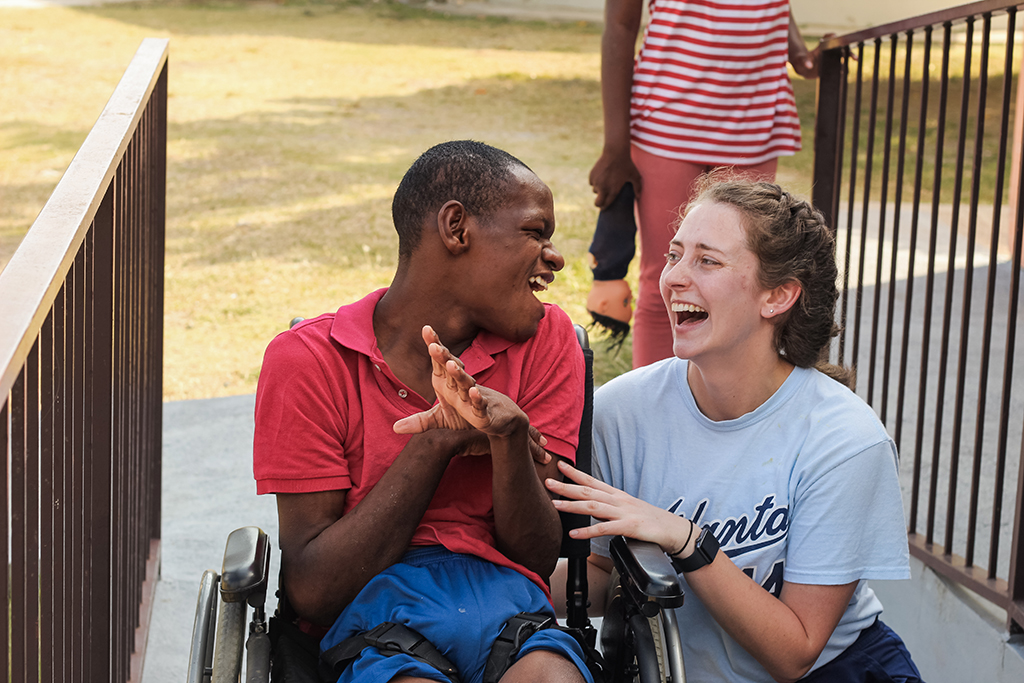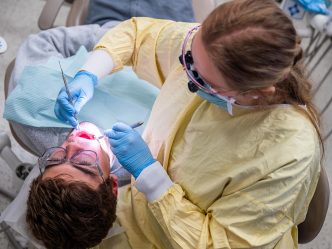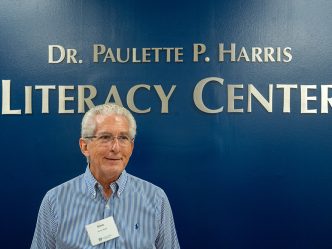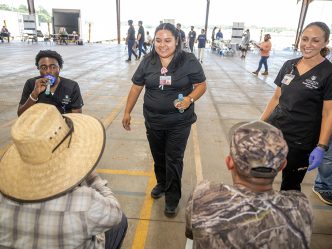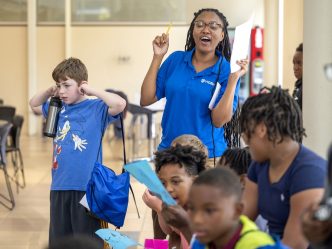When Kathleen Maley and Madie Perreault chose to attend the Master of Health Science in Occupational Therapy program at Augusta University, they wanted to be a part of a nationally-recognized program where they could gain valuable clinical experience.
The pair, along with 18 other students and faculty from the Department of Occupational Therapy, recently made a trip to Mustard Seed Communities in Jamaica, where they worked with children and adults with disabilities. Having the opportunity to gain fieldwork abroad while working with an underserved population was something both recognize will positively impact their careers and lives.


University’s occupational therapy
students assisted with was taking
residents to a local market.
“Everyone who went on this trip has already discussed trying to find another time to go back,” Perreault said. “It left such an impression on all of us that we all have such a desire to go back. This is an experience like no other, and I think it’s so important and amazing, everyone should go.”
Maley was never able to study abroad during her undergraduate career because of her commitments as a cross country and track and field student-athlete at the University of Tennessee. When she made the decision to go to graduate school, family and friends pointed her toward AU.
“I heard so many good things about Augusta University, but this Jamaica program was a big part of why I wanted to come to Augusta because not many graduate OT programs have the opportunity to do clinicals abroad,” she said. “I love traveling, and that was something I always wanted to do but couldn’t just because of being an athlete. The fact that I got to do it while in grad school was super appealing for me, but little did I know how much it would leave a lasting impact on me.”
Perreault, who is originally from Little Rock, Arkansas, and graduated from the University of Georgia, was unaware of the trip until she arrived at AU, but she attended information sessions during the summer with professors and past students who went on the trip.
One of the key draws to the experience is the fact that the Jamaica trip is classified by the program as Level One fieldwork. Students are required to do six experiences while supervised by a clinical instructor before graduating. The more Perreault learned about the trip, the more her eagerness to participate grew, especially with the expected interaction with the community.
“When I first heard about the Jamaica trip, I thought, ‘Oh, that’s a cool experience,’ but in my head I was like, ‘I don’t want to do that because it’s going to take away from my chance of getting hands-on clinical experience,” Perreault said. “I was very wrong. The trip is a different level because you’re in a setting where you’re working with such a vulnerable population in this country that is very different from the one you live in and you not only have to learn how to interact with them, but you get to see a whole different side of people. I think that’s important. I learned a lot about interacting with people that are different than me, and I think that is important to have when you’re going into a field like occupational therapy.”
Perreault also appreciated how the professors worked to give the trip a clinical significance. She said, while they were interacting with the residents, the professors took the time to educate the students about what they were doing and how it could be applied to situations in the United States.
The partnership
Department Chair and Program Director Pam Kearney, EdD, said the first trip to Jamaica was in the fall of 2013, led by associate professor Sharon Swift, EdD. A student at the time had a previous relationship with Mustard Seed and broached the idea of going there to do fieldwork. The trip was approved, and Swift led a group of 12 students that fall. Kearney joined the trip in the spring of 2014.
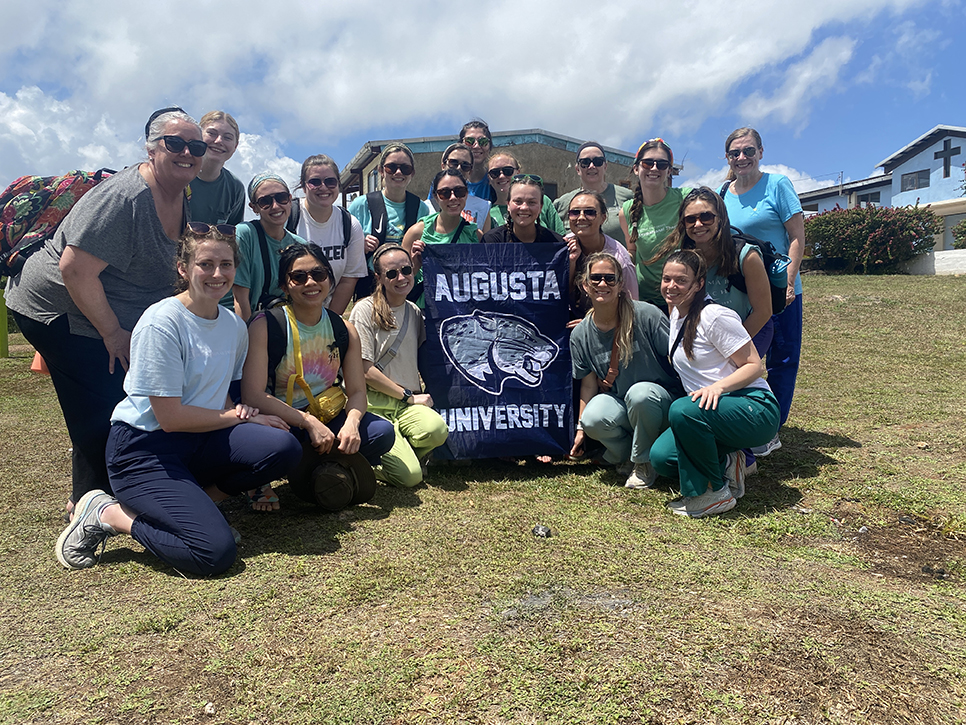

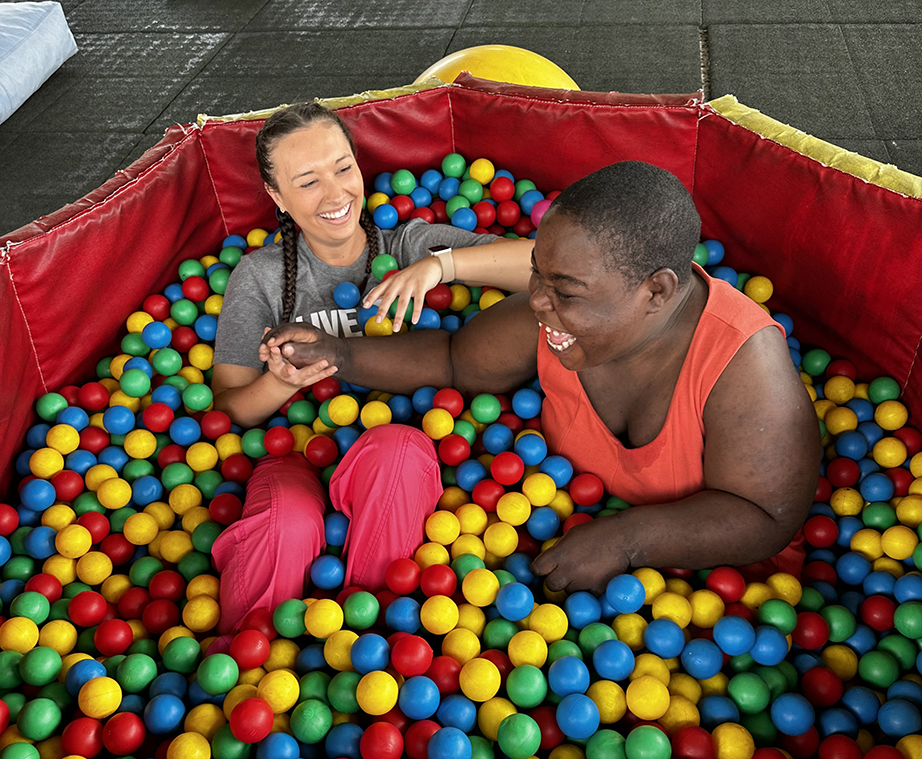

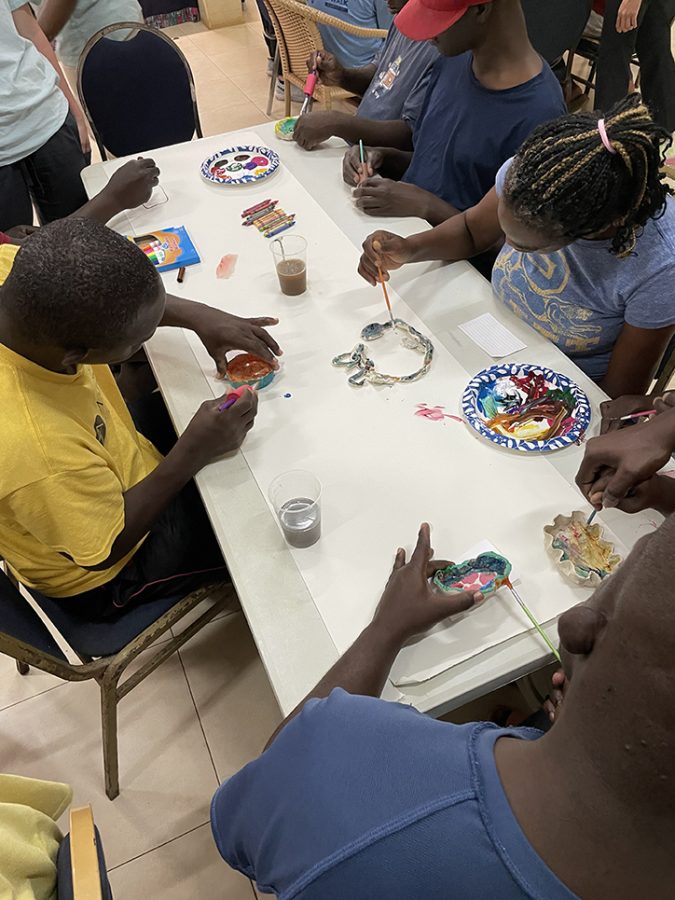

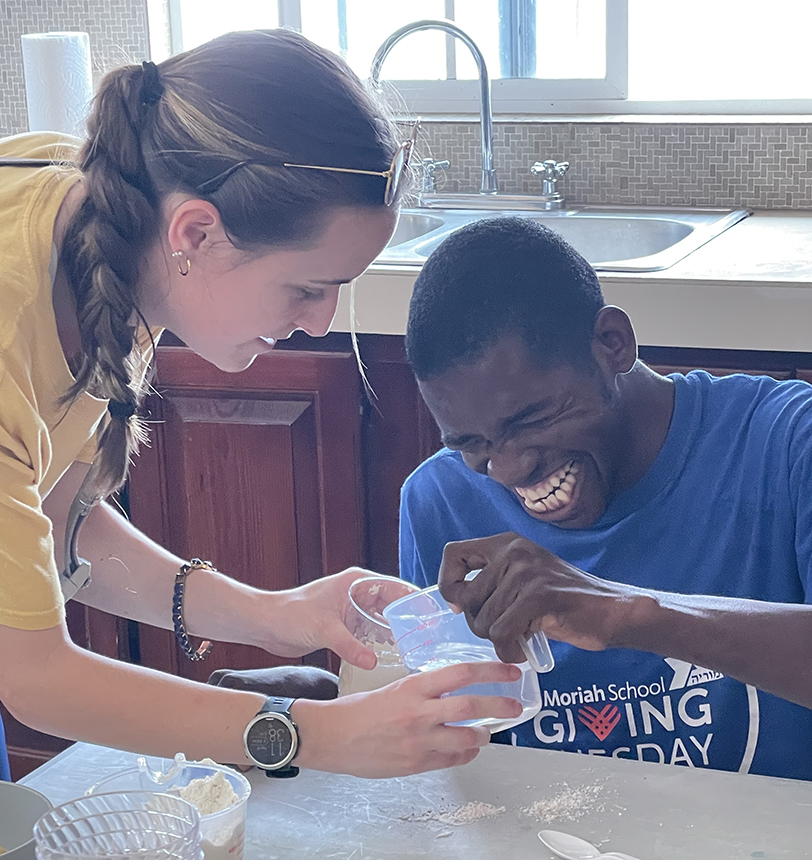

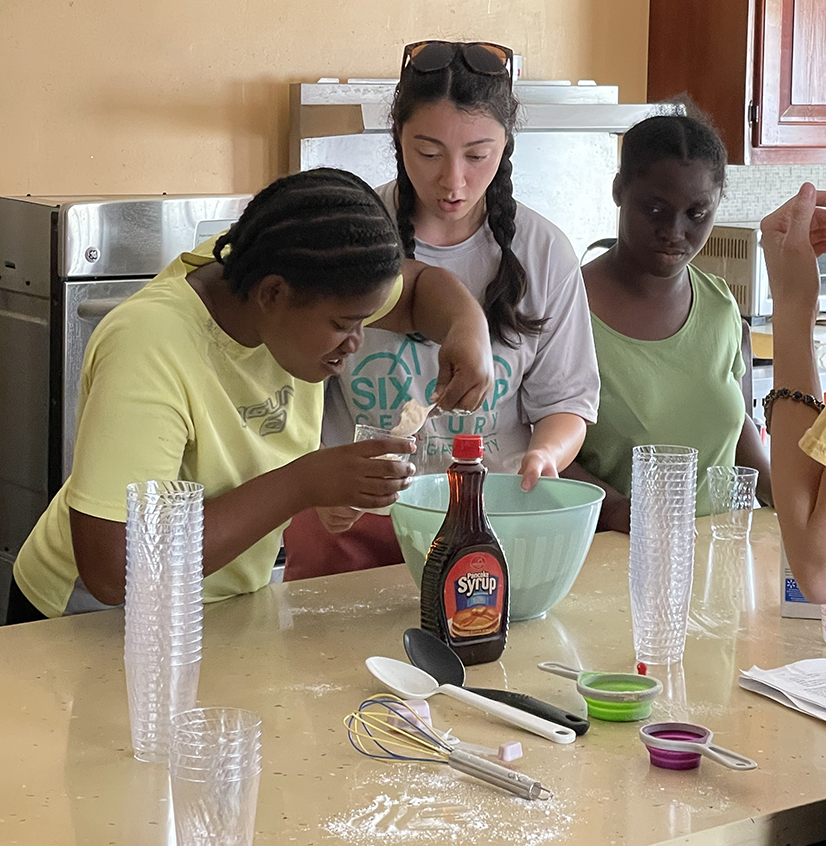

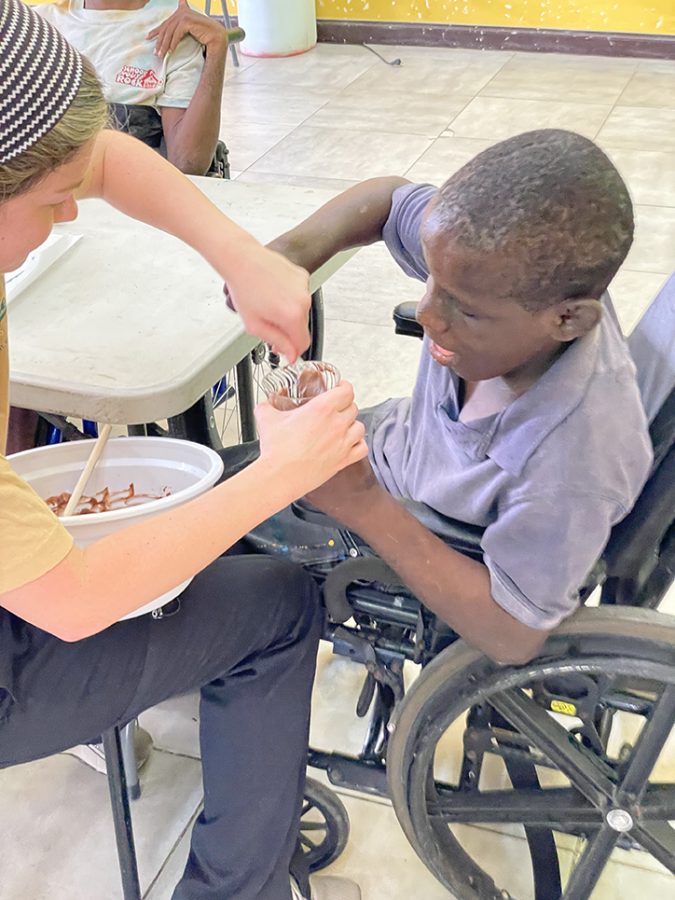

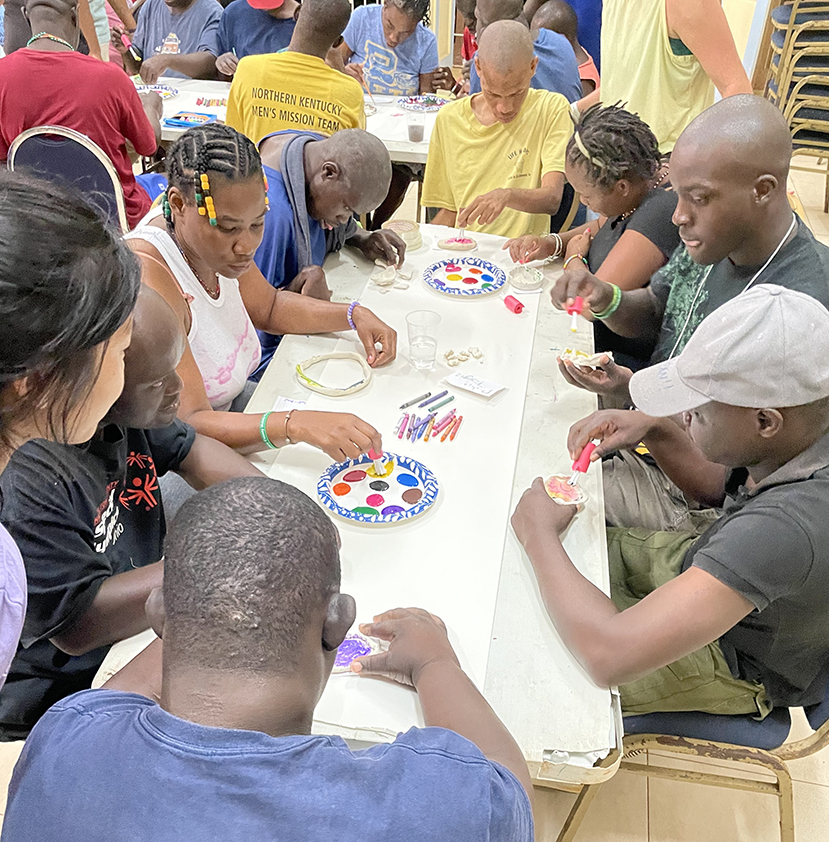

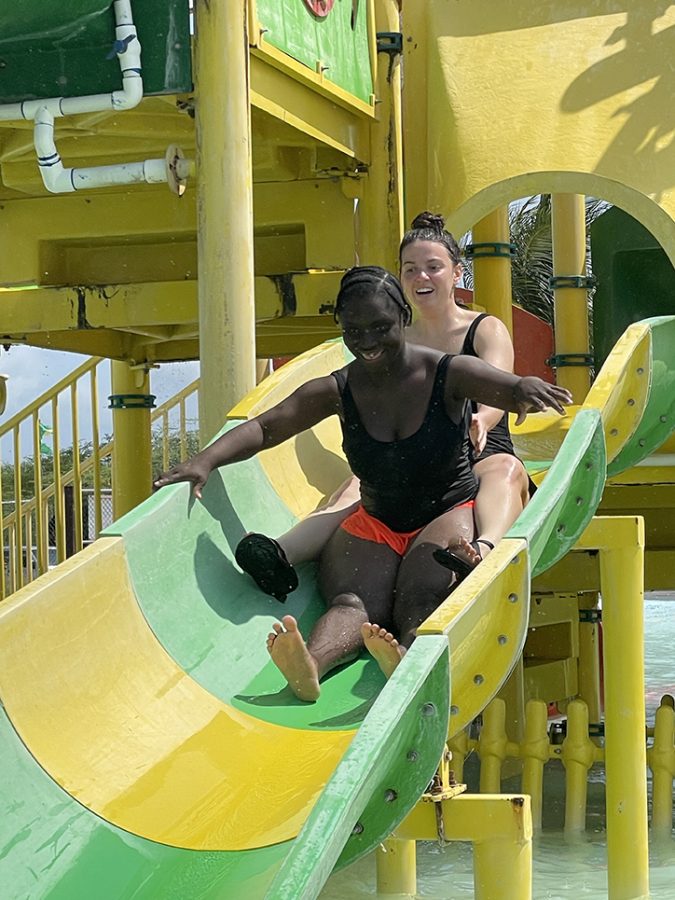

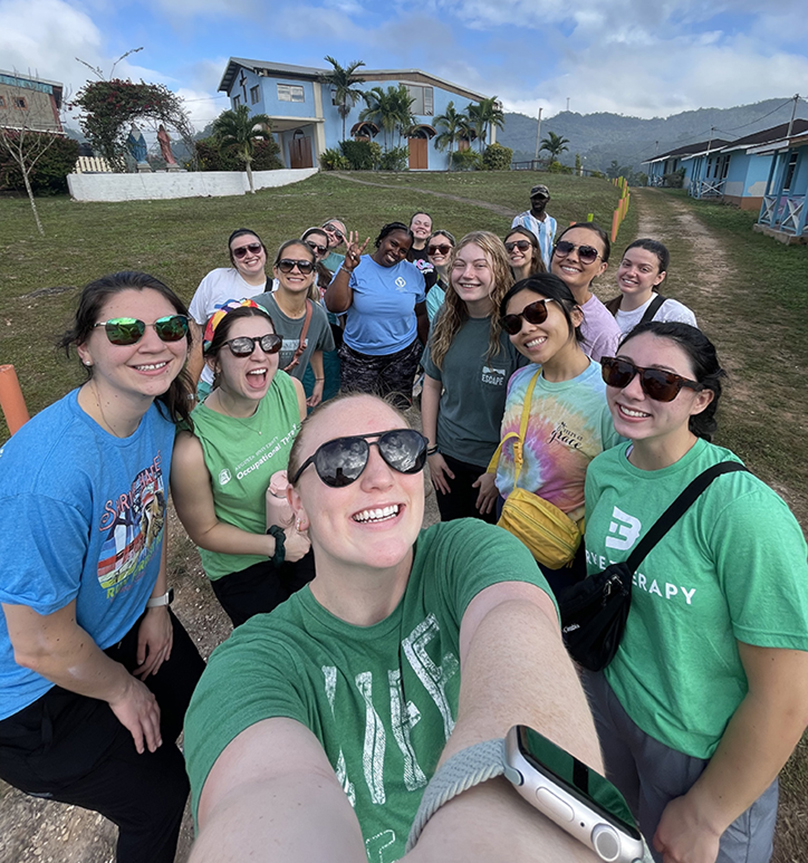

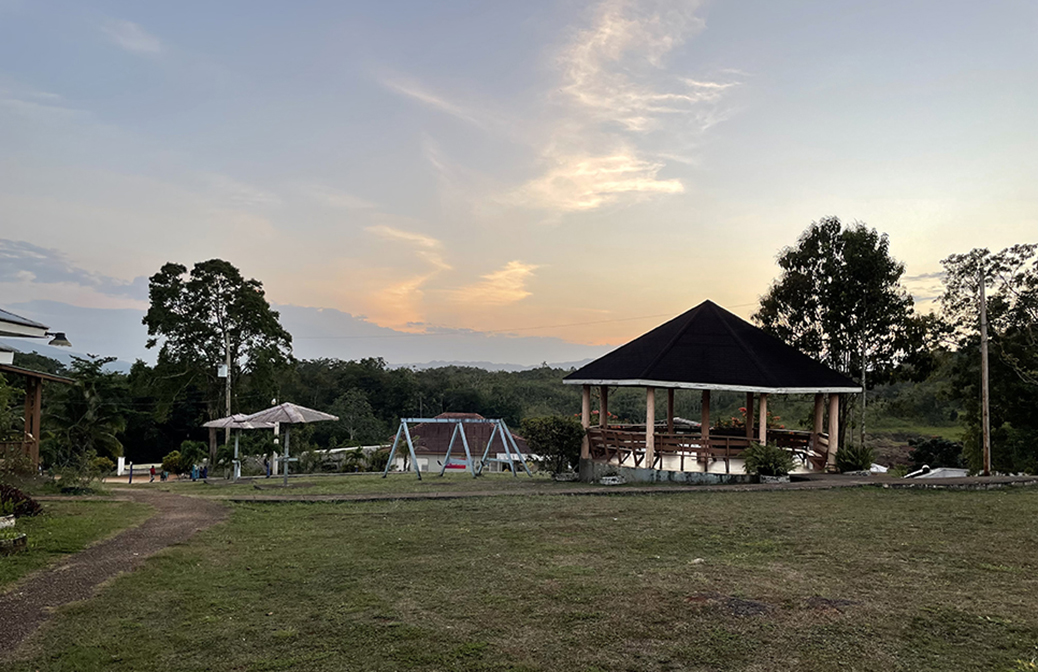

The department made two trips a year until the COVID-19 pandemic, and March’s trip was just the second since the pandemic status was lifted.
Mustard Seed began in 1978 in the Mona Common community on the outskirts of Kingston, Jamaica, as a home for a handful of abandoned and disabled children. The populations the community serves include children and adults with disabilities, children and teens affected by HIV, and teen mothers, along with their babies.
It also manages several community outreach programs to combat poverty and provide education to local populations. Presently, the staff serves more than 400 children, young adults and families in Jamaica.
When Kearney first visited, she felt overwhelmed as most of her training involved adults. She said there aren’t many places in the U.S. where you face so many people with disabilities in one place, but she said over time they’ve gotten to know the residents and vice versa.
“Certainly, there are new residents each year but there’s a core of residents that we have known since 2013 and 2014,” said Kearney, who has missed only one trip since 2014. “Same is true for the staff. For those first few trips, the staff wasn’t quite sure what to make of us. Our relationship with staff has grown over the years as well.”
“I think my biggest takeaway is how important it is to always treat people as people no matter what the situation is.”
Madie Perreault
Hands-on experience
Kearney said preparation begins for the students over the weeks prior to the trip with a course intended to educate the students about the Jamaican culture, as well as their language, economy, health care options, culture and beliefs. They also learn about Mustard Seed since the entire trip is under the organization’s umbrella.
The team is also provided with profiles that include pictures to familiarize themselves with the residents. The professors make suggestions to the students about the daily activities they’ll be doing but leave the bulk of the planning to the students. From there, students develop the supply lists based on the activities they schedule for the week, which gives them valuable learning experience in development and execution.
“We guide students on what they need to develop, activities that have worked in the past, but they’re the ones who develop the activities they will lead with residents. Even when we give them ideas, we don’t tell them how to do it,” Kearney said.
Once the group arrives, the experience is completely on “island time” and immersive, from attending Mass with residents to accompanying them to the local market to assisting with daily tasks, which usually is up to 12 hours a day.
“We’re supporting the residents in activities that are enjoyable and hopefully meaningful to them,” Kearney said. “As occupational therapists, we want to be client-centered and support residents to engage and participate.”
Maley and Perreault relished their leadership roles on the trip, but Kearney mentioned how proud she was of everyone on the trip who got out of their comfort zone and stepped up.
The one event the residents look forward to the most is a trip to the local waterpark, which, according to Kearney, most never get a chance to go to because of their care needs. AU is the only group Mustard Seed allows to take residents to the waterpark because of the number of students available to help.
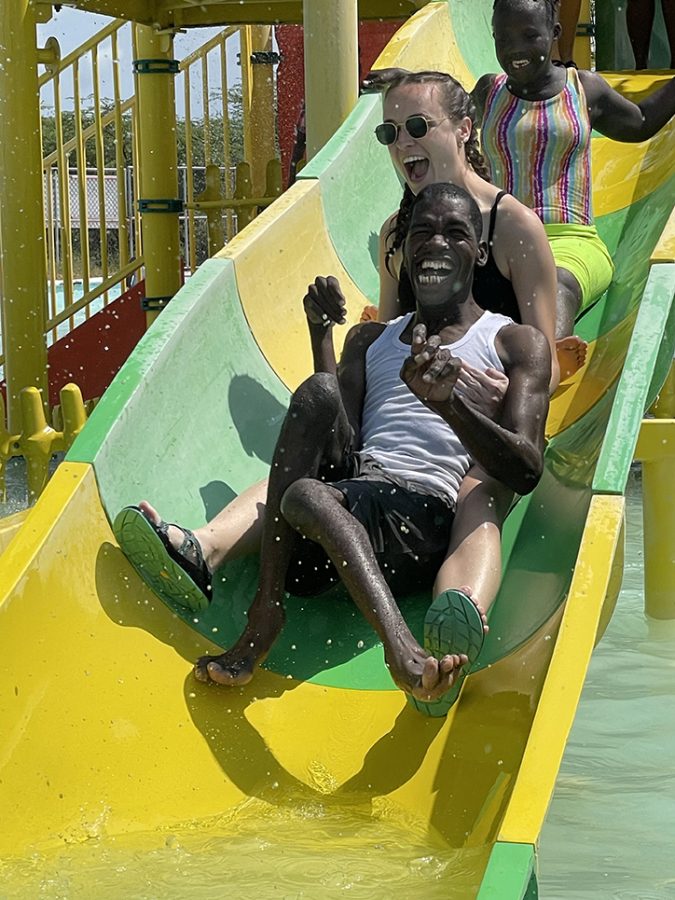

“We got to take 35 residents to the waterpark; they trust us with that job. It was so memorable because so many of the residents are in wheelchairs and never get to experience anything like that. So, seeing them in the water and having them say things like ‘I feel so light’ or ‘this feels so good’ was really special,” Maley said.
“For a lot of these residents, this was the first time they’ve ever been in water and the first time they’ve ever been out of their wheelchair long enough to not have any pressure on their joints,” Perreault said. “I think my biggest takeaway is how important it is to always treat people as people no matter what the situation is.”
Kearney said spending the week at Mustard Seed is “pure joy” and “pure love.” Listening to the end-of-the-day debriefs with students brought the professors great pleasure because they saw not only the learning that was being done but also the connections that were being formed.
“I really enjoy watching them figure things out and listening to them make connections,” she said. “They’re talking about and applying that [classroom] knowledge to understand what they’re doing or what they’re seeing. As an educator, when they’re able to pull those pieces together, that’s when you feel like everything was working out the way it’s supposed to.”
 Augusta University
Augusta University
